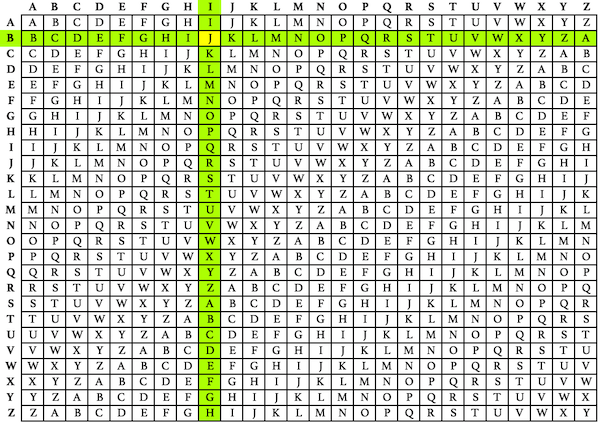Simple Substistuion Cipher Generate Key Python
In this way we can rank different decryption keys, the decryption key we want is the one that produces deciphered text with the highest likelyhood. The hill-climbing algorithm looks like this: Generate a random key, called the 'parent', decipher the ciphertext using this key. Rate the fitness of the deciphered text, store the result. Substitution Cipher Python. Generate and return a secret-key string by randomly shuffling the characters in the alphabet string argument. I came up with this.
| defencrypt(plaintext, key): |
| key_length=len(key) |
| key_as_int= [ord(i) foriinkey] |
| plaintext_int= [ord(i) foriinplaintext] |
| ciphertext=' |
| foriinrange(len(plaintext_int)): |
| value= (plaintext_int[i] +key_as_int[i%key_length]) %26 |
| ciphertext+=chr(value+65) |
| returnciphertext |
| defdecrypt(ciphertext, key): |
| key_length=len(key) |
| key_as_int= [ord(i) foriinkey] |
| ciphertext_int= [ord(i) foriinciphertext] |
| plaintext=' |
| foriinrange(len(ciphertext_int)): |
| value= (ciphertext_int[i] -key_as_int[i%key_length]) %26 |
| plaintext+=chr(value+65) |
| returnplaintext |
commented Jan 3, 2018
I think there are limitations here with lower case and capital letters. You'd need to check for I wrote one that handles all default ASCII characters (95): For example: |
commented Jan 3, 2018 • edited
edited
Simple Substistuion Cipher Generate Key Python Free
commented Mar 6, 2018
@flipperbw , |
commented May 1, 2018

I implemented this some years ago, along with a tabula recta generator so you can do it by hand (for fun!) |
commented Jan 10, 2020
Hello! |
commented Jan 10, 2020
It's just the return text, that one by one figures out the proper character to return given the key. It's been a while since I wrote this snippet but if it can find a match of an ascii character, itll convert that, else it will leave it alone. |
- Cryptography with Python Tutorial
- Useful Resources
- Selected Reading
In this chapter, we will focus on step wise implementation of RSA algorithm using Python.
Generating RSA keys
The following steps are involved in generating RSA keys −
The'Personid' column would be assigned a unique value. INSERT INTO Persons (FirstName,LastName)VALUES ('Lars','Monsen');The SQL statement above would insert a new record into the 'Persons' table. How do you make postgres auto generate primary key.

Create two large prime numbers namely p and q. The product of these numbers will be called n, where n= p*q
Generate a random number which is relatively prime with (p-1) and (q-1). Let the number be called as e.
Calculate the modular inverse of e. The calculated inverse will be called as d.
Algorithms for generating RSA keys
We need two primary algorithms for generating RSA keys using Python − Cryptomath module and Rabin Miller module.
Cryptomath Module
The source code of cryptomath module which follows all the basic implementation of RSA algorithm is as follows −
RabinMiller Module
The source code of RabinMiller module which follows all the basic implementation of RSA algorithm is as follows −
The complete code for generating RSA keys is as follows −
Output
Simple Substitution Cipher In Python
The public key and private keys are generated and saved in the respective files as shown in the following output.